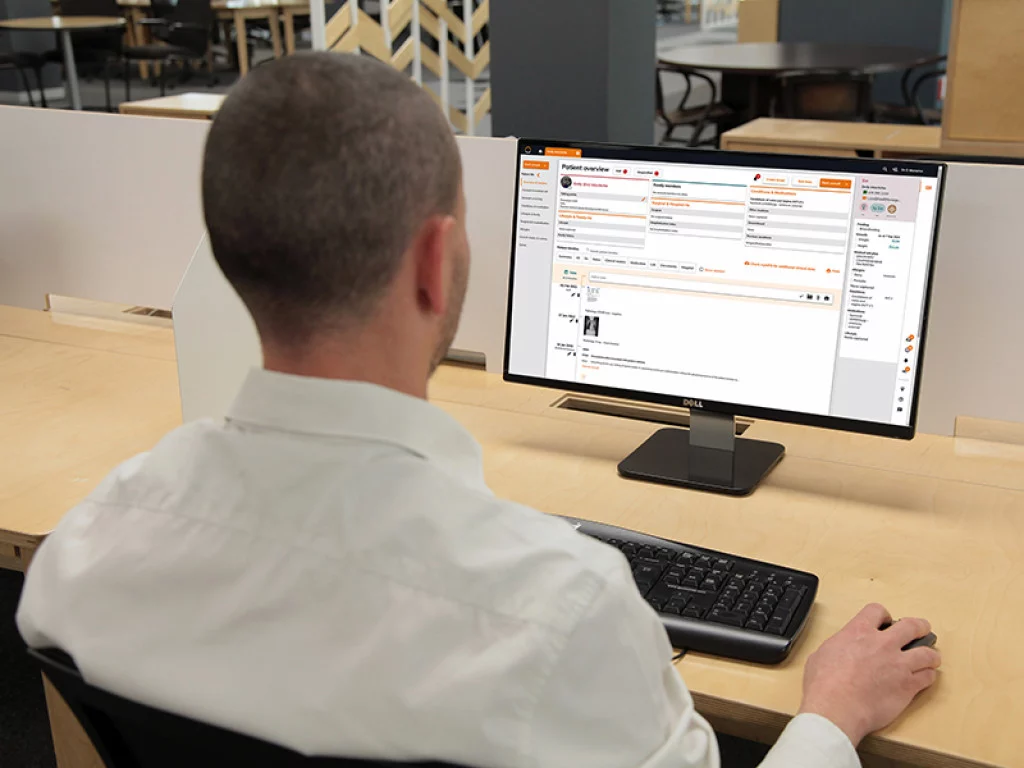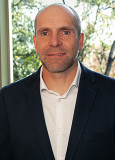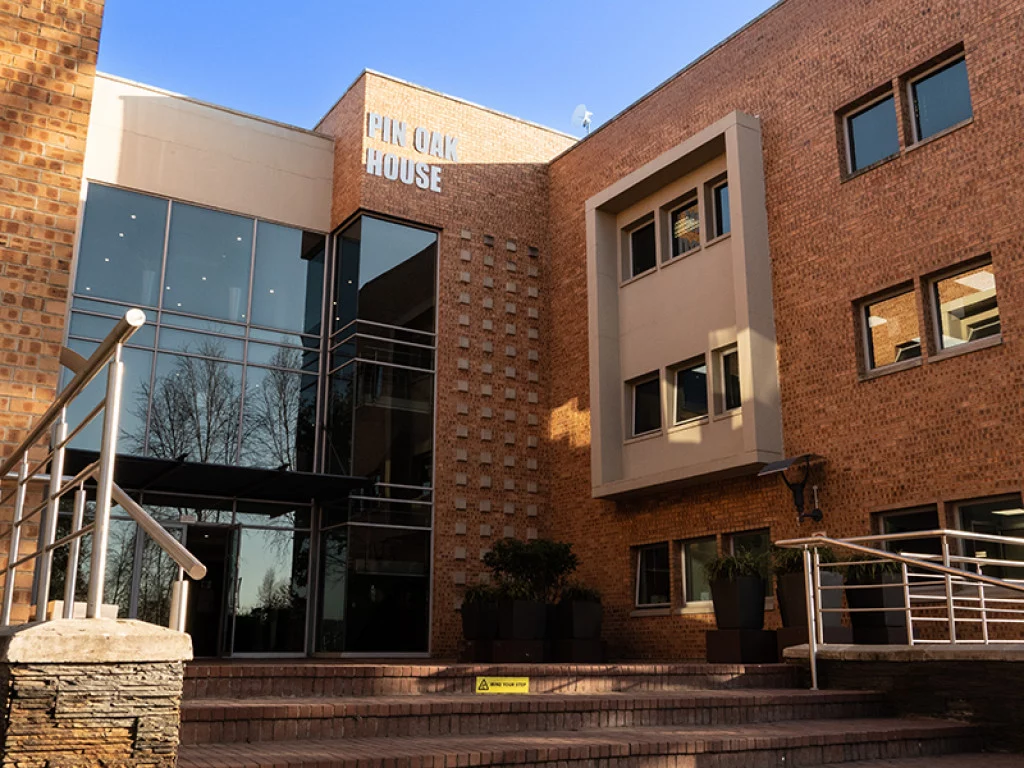A major force in healthcare solutions, Healthbridge fulfils South Africa’s technology development requirements. We delve into vaccine distribution and transforming the industry with CEO, Luis da Silva.
INTRODUCTION
Healthcare is changing fast.
Due to several key drivers of change, a tremendous swathe of opportunities has been unleashed for smart, proactive, forward-thinking companies. Costs are spiralling out of control in one of the largest and most important industries, yet the key outcomes are not improving and fair access to healthcare is still waning. Paradoxically, there is an onslaught of technological advances in a tech-starved industry, while new businesses and models of care delivery continue to emerge.
In 1990, Luis da Silva obtained a BSc in Electrical Engineering, achieving distinction from Wits, Johannesburg, with process control theory as his major area of study. In 2000, after a decade spent gaining vital industry experience, da Silva joined Healthbridge as the Key Accounts Executive responsible for establishing relationships and services to all major medical aids, hospitals and pathology groups. Today, da Silva is Healthbridge’s CEO.
He was originally seduced by Healthbridge when offered the opportunity to be part of a dynamic team that would build a company with a real purpose and vision to make a difference in the South African healthcare industry. At present, Healthbridge is a leading HealthTech platform that fuels better healthcare outcomes.

SOLUTIONS IN BUSINESS
Healthcare is an information-intensive industry, involving complex interactions between different parties, ranging from medical practitioners and patients to medical aids and healthcare stakeholders. The ability to manage this constant flow of information quickly and efficiently is vital to the smooth running of any medical practice.
“At Healthbridge, our priority is to ensure that medical practitioners run sound businesses, so that they are freed up to focus on their patients,” opens da Silva.
Healthbridge has pioneered real-time claim processing since the early 2000s and has significantly improved the day-to-day running of private medical practices. Through continuous innovation, medical practitioners have benefited from this by reducing time spent on administration, the automatic reconciliation of medical aid payments, faster payment turn-around times from both medical aids and patients, lower incidences of bad debt, and fewer queries to medical aids.
“Today, we offer cloud solutions that digitise private practices processes, from easy billing to clinical records,” he acclaims.
The complexity of selecting the correct coding for doctors is immense.
“If we had to calculate the number of permutations possible, there are more than a million times more coding combinations than grains of sand on the planet. Healthbridge has put a lot of effort into reducing this complexity both from a billing perspective and clinical perspective,” da Silva adds.
Recently, Healthbridge has reduced functionality in its electronic healthcare record (EHR) system, allowing the selection of medicines by doctors to be enormously simplified using machine learning (ML) and artificial intelligence (AI). By doing this, the doctor is empowered to really focus on the patient and not worry about the complexities of documentation during the consultation.

“Our purpose, ‘to transform healthcare and enhance people’s lives’ is what gets us to jump out of bed every day”
Luis da Silva, CEO, Healthbridge
TECHNOLOGICAL REVOLUTION IN THE INDUSTRY
Where Healthbridge shines brightest is in its ability to lead the industry in terms of technology design and development.
“We pride ourselves on being a provider of true cloud services in this industry and being able to deliver innovation at high speed. The interesting dynamic we have dealt with over the years is how slow healthcare’s move to the cloud has been,” da Silva explains.
Even though the benefits of cloud-based computing are well-known and widely accepted as the most practical, cost-effective and agile way to manage and store clinical notes, patient records and practice data, most doctors in private practice have opted to delay the move. However, the arrival of the COVID-19 pandemic became the catalyst for the long-overdue transition to the cloud. During the darkest depths of the pandemic, 1,000 medical practices in South Africa made the bold decision to migrate to Healthbridge’s cloud services.
“Some of the most significant findings we have taken away from the migrating of over 1,000 private medical professionals to the cloud is that we cannot compromise on ease,” he adds.
In combination with a real understanding of the nuances that characterise healthcare, Healthbridge’s solutions ensure that the connection with the patient isn’t lost during a consultation, or that the doctor isn’t slowed down by the system. By sticking to these design principles, the feedback from doctors has been overwhelmingly positive with many saying that the move to the cloud was easier than anticipated and resulted in a robust stream of referrals for Healthbridge.
The major focus of the company is on helping doctors to treat people more effectively. This is achieved by empowering them to have a higher quality interaction with patients, via immediate access to the most relevant patient information available, enabling a quick and accurate diagnosis. This includes having access to a patient’s medical history such as a record of all previous visits, historical pathology results and operations, and a list of patient allergies.
“We are constantly looking into new technology offerings too, which is why AI is vitally important, as it offers great possibilities in terms of pattern recognition,” furthers da Silva.
“Our ethos of developing easy-to-use technology for better healthcare outcomes has allowed us to appropriately develop a custom solution for one of the country’s biggest health challenges”
Luis da Silva, CEO, Healthbridge

COVID-19 VACCINE PROVISION
A highly important project that Healthbridge has completed recently is the company’s involvement in COVID-19 vaccination. When selected centres began the country’s largest vaccination rollout, Discovery was the first to activate Healthbridge’s vaccination billing system at its head office in Sandton.
“Our vaccination billing system was soon applied to their additional vaccination sites nationwide, as well as other players such as the Western Cape Department of Health’s mass vaccination site at the Cape Town International Convention Centre, Momentum, Life Healthcare and others,” details da Silva.
The vaccination rollout was an extensive exercise and required careful financial planning by private vaccination sites. Managing this included purchasing the required vaccine stock from government at the defined price that subsequently needed to be claimed against the medical aid schemes that the members belong to, together with a small fee for administering the vaccine. This fee income then went back into the cashflow required to purchase further batches of vaccines.
Leveraging 22 years as a leading healthcare technology provider, Healthbridge built its vaccination billing system in less than six weeks after initial contact with Discovery, reinforcing the company’s reputation as a leader in ease-of-use technology.
“We were incredibly pleased to have worked with Discovery to develop the system. While our expertise is in providing clinical and billing software for private medical practices, our ethos of developing easy-to-use technology for better healthcare outcomes has allowed us to appropriately develop a custom solution for one of the country’s biggest health challenges. We are very proud to be part of the solution,” he adds.
SEEKING HIGH PERFORMERS
For da Silva, the key to curating a successful company culture amongst Healthbridge’s team of ‘Bridgians’ is to “seek high performers with a positive, growth mindset, who will thrive in a culture based on strong values, accountability, openness, collaboration and no politics. This can be seen by the number of staff that have changed roles throughout their tenure at Healthbridge, as we are a company that will do what we can to help people realise their potential.”
The people at Healthbridge remain passionate about making a difference in South African healthcare, across a staff complement of over 160 ‘Bridgians’, who are all dedicated to understanding the business of running a medical practice. This includes client supporting roles, technical support teams, as well as Healthbridge’s own in-house business analysis and software development teams.
Alongside this, Healthbridge provides ongoing development courses with a special focus on team leaders. The aim is to ensure that new leaders are well-equipped and fostered with a sincere and genuine concern for those in their charge and enable their people to realise the very best in themselves.
Healthbridge’s culture and team mentality remains one of the key reasons why the company can retain its high calibre of staff.
“Our purpose, ‘to transform healthcare and enhance people’s lives’ is what gets us to jump out of bed every day. We believe both private and public partnerships will be key to creating the new healthcare system for South Africa, and other countries. COVID-19 showed us that this is possible, and our job is not done until this is achieved,” da Silva concludes passionately.































